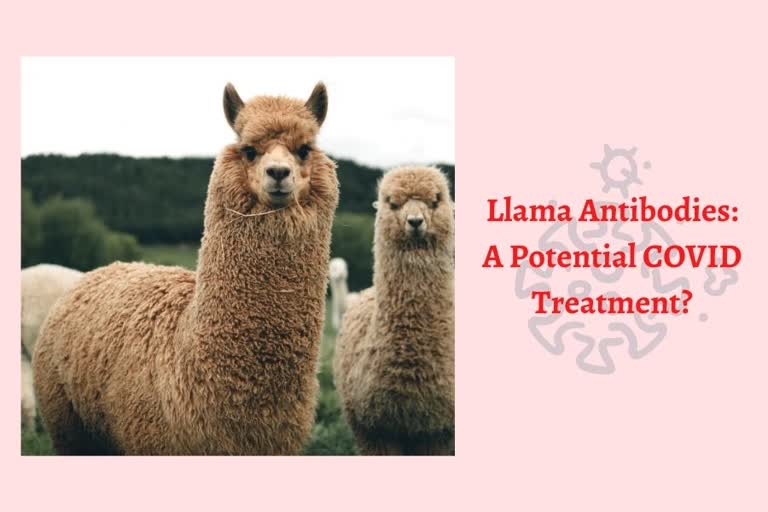Researchers at the Rosalind Franklin Institute in the UK found that nanobodies -- a smaller, simple form of antibody -- can effectively target the SARS-CoV-2 virus.
The study, published in the journal Nature Communications, shows that short chains of the molecules, which can be produced in large quantities in the laboratory, significantly reduced signs of the COVID-19 disease when administered to infected animal models.
The nanobodies, which bind tightly to the SARS-CoV-2 virus, neutralizing it in cell culture, could provide a cheaper and easier to use alternative to human antibodies taken from patients who have recovered from COVID-19, the researchers said.
Human antibodies have been a key treatment for serious COVID-19 cases during the pandemic, but typically need to be administered by infusion through a needle in the hospital, they said.
"Nanobodies have a number of advantages over human antibodies," said Professor Ray Owens, from Rosalind Franklin Institute and lead author of the research.
"They are cheaper to produce and can be delivered directly to the airways through a nebulizer or nasal spray, so can be self-administered at home rather than needing an injection," Owens said.
This could have benefits in terms of ease of use by patients but it also gets the treatment directly to the site of infection in the respiratory tract.
The team was able to generate the nanobodies by injecting a portion of the SARS-CoV-2 spike protein into a llama called Fifi, which is part of the antibody production facility at the University of Reading in the UK.
The spike protein is found on the outside of the virus and is responsible for binding to human cells so it can infect them.
Although the injections did not make Fifi sick, it triggered her immune system to fight off the virus protein by generating nanobodies against it.
A small blood sample was then taken from the llama and the researchers were able to purify four nanobodies capable of binding to the SARS-CoV-2 virus.
The nanobodies were then combined together into chains of three to increase their ability to bind to the virus. These were then produced in cells in the laboratory.
The team, which included scientists at the University of Liverpool, University of Oxford and Public Health England, found three nanobody chains that were able to neutralize both the original variants of the SARS-CoV-2 virus and the Alpha variant that was first identified in Kent, UK.
A fourth nanobody chain was able to neutralize the Beta variant first identified in South Africa.
When one of the nanobody chains was administered to hamsters infected with SARS-CoV-2, the animals showed a marked reduction in disease, losing far less weight after seven days than those who remained untreated.
Hamsters that received the nanobody treatment also had a lower viral load in their lungs and airways after seven days than untreated animals, according to the researchers.
"Because we can see every atom of the nanobody bound to the spike, we understand what makes these agents so special," said Professor James Naismith, Director of the Rosalind Franklin Institute.
The researchers noted that while vaccines have proven extraordinarily successful, not everyone responds to vaccination and immunity can wane in individuals at different times.
"Having medications that can treat the virus is still going to be very important, particularly as not all of the world is being vaccinated at the same speed and there remains a risk of new variants capable of bypassing vaccine immunity emerging," said Naismith.
"Successful and approved, nanobodies could provide an important treatment around the world as they are easier to produce than human antibodies and don't need to be stored in cold storage facilities," he added.
(PTI)
Also Read: Is Physical Distance Enough To Prevent Infectious Aerosols Indoors?



